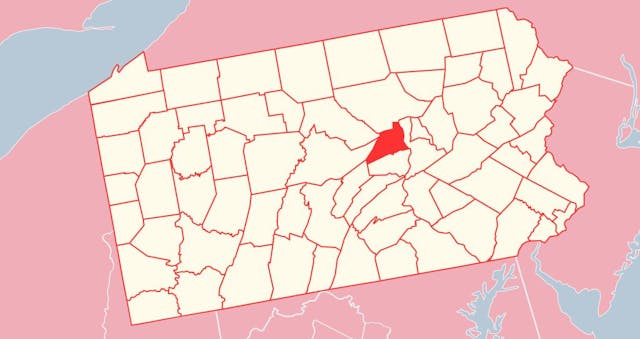Rehabs in Union
Union is located in the Commonwealth of Pennsylvania. It was founded on March 22, 1813. According to the 2010 census, it had 44,947 residents. Lewisburg serves as the county seat.
According to the National Center for Health Statistics, the mortality rate is 42.4% per 100,000. To clarify, 5,168 people died of drug overdoses in 2020. Compared to the national average, the rate is not that high.
In this regard, rehabs in Union County are working hard to improve the situation. They offer different types of rehabilitation.
Drug and Alcohol Misuse Level Evaluation
The road to recovery is a bit long. The first step on that road is the evaluation process. The process aims to find mental and physical health issues. It prepares people for the upcoming treatment.
Aside from that, it determines the severity of the addiction. Through questions, specialists write a thorough report on the following points:
Drugs and alcohol use
The severity of the use
Co-occurring conditions
After this, when the condition and type of care are obvious, patients need to choose a detox program.
Detox
The second stage of the road to recovery is detoxification. It is carried out for a specific reason. The latter is to help people break their addiction to alcohol or other addictive substances.
Additionally, they get rid of drugs and non-prescription medications. The detox program is standard. Depending on the patient's condition, though, it may be customized.
After ridding the body of toxins, people get ready for ongoing treatment.
Types of Rehabs in Union County, Pennsylvania
So, after the phases mentioned above, people choose a specific type of therapy. Besides the therapy type, individuals must also choose a good facility. This is because they spend the majority of their time there.
For example, White Deer Run of Allenwood is a good facility to consider.
Inpatient Rehabs
Inpatient program provides both therapy and housing. This is intensive maintenance therapy. It’s beneficial for those who are severely dependent. This will also be helpful for those who experience severe mental health issues.
Even though there may be variations, the typical length of stay in long-term care is 30 days. There are various types of inpatient care, including
Hospitalization
Residential care
Luxury care
Residential treatment provides comparable clinical therapy. However, the price, duration of stay, and quality of the clinics differ.
Outpatient
This program is for those who have mild to severe addictions. It is done in specialized settings. It provides a range of therapeutic services for several hours each day.
The plan, like the previous one, lasts for 30 days. However, in some situations, people must make a lifetime commitment. As for the strategies, they are the following:
Counseling
Support Group
Intensive Outpatient
The Intensive Outpatient (IO)
In this case, dependencies that don't need constant monitoring or detoxification are treated. Besides, patients carry on with their regular, everyday lives and live at home.
Specialists sometimes combine IOPs with inpatient programs. Generally, this serves a clear purpose. It intensifies the influence and makes individuals get back to their regular lives.
Partial Hospitalization Program or PHP
In this case, patients have more access to services than in other outpatient programs. They stay in the hospital during the day and go home at night. It's accessible in a variety of formats.
Usually, it provides a fairly well-structured schedule of 4-6 hours per day. Even though they are not enrolled in inpatient care, they still need close medical attention. For a good result, family members also must create a safe and supportive environment at home.
Aftercare
After the main therapy, one should try to lead a sober life. They must take part in different aftercare programs to achieve this. Some rehabilitation clinics often provide ongoing help.
Patients must find a clinic that gives its graduates access to 12-step meetings or peer support groups, for instance. They might be helpful, but initially, desire is what matters the most.
Payment Options Without Insurance
If there is no insurance, one should not worry. It is still possible to get the necessary supervision without insurance. There are different options available for selection:
Sliding Scale
Non-Profit
Faith-Based
Payment Assistance
Actually, these are good options for individuals without insurance. In the first case, costs may vary based on the individual’s financial situation. In the second case, non-profit organizations offer free supervision or significant discounts.
As for the third case, religious institutions provide free medical attention. At last, in the fourth case, some treatment centers offer financial aid to those in need.

